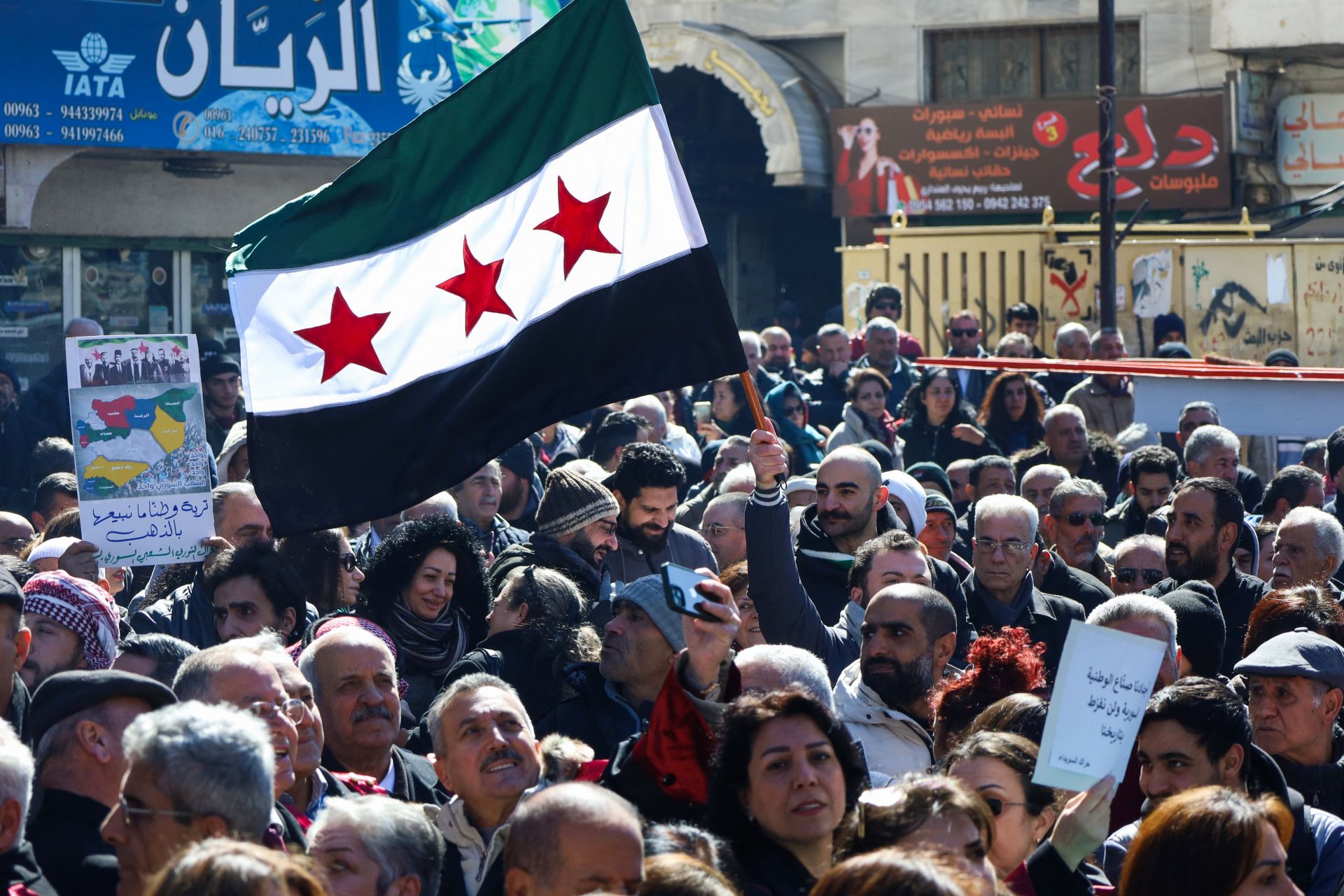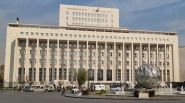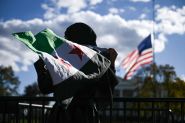- Home
- Middle East
- Syria Reverses Bar Closures in Damascus Christian Areas

Syrians lift placards as they demonstrate in the central Karama Square of the southern city of Suwayda on February 25, 2025. ©Shadi Al Dubaisi / AFP
Syrian authorities have reversed a decision to shut bars and restaurants serving alcohol in Christian-majority areas of Damascus after public outcry, witnesses, and a Syrian news outlet said on Friday.
After Islamist-led rebels ousted longtime ruler Bashar al-Assad in December, the new authorities had pledged to protect the country's ethnic and religious minorities.
An AFP journalist said around a dozen bars and restaurants in Damascus's Old City were shuttered on Thursday evening because they lacked the authorization to sell alcohol, a move that sparked a social media outcry.
Syrian news outlet Enab Baladi said it had seen an official document ordering the closure of several restaurants in Christian areas of the capital "that do not adhere to their licenses to serve alcoholic beverages".
It said similar moves would affect some 250 restaurants in Christian neighborhoods including Bab Tuma and Bab Sharqi that have remained open during the Muslim fasting month of Ramadan, which is due to end in the coming days.
Enab Baladi said a decree was later issued ordering the "immediate reopening of these establishments".
George, a bar owner in Bab Sharqi who declined to give his surname, said on Thursday evening that "joint police and municipality patrols started to shut establishments without a license to serve alcohol" in recent days.
But "the campaign widened" on Thursday, he said, calling the move "an attack on the district's character" that would harm the livelihoods of hundreds of families.
He said police officers reopened the establishments after a meeting between the governor of Damascus and restaurant owners.
Jenny Wheibe, 28, a waitress in a restaurant in the Old City, said the closures were "unjustified", noting they came at peak times ahead of Easter and the Eid al-Fitr holiday at the end of Ramadan.
Ziad Isaac, 39, who works in a shop in Bab Tuma, said that "we respect the opinion of the Muslim majority, but we ask for our space and identity to be preserved".
With AFP
Read more



Comments